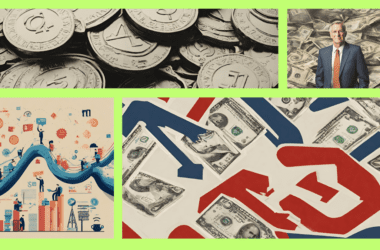Introduction
In the intricate world of personal finance, credit card debt often stands as a formidable adversary. For many individuals, the burden of multiple credit cards with varying interest rates and due dates can become overwhelming. This article delves into the solution – consolidating credit card debt – offering insights, strategies, and a comprehensive guide to help you navigate the path to financial freedom.
The Burden of Multiple Credit Cards
The Perils of High-Interest Rates
Credit cards, while convenient, often come with high-interest rates that can quickly escalate financial woes. Juggling multiple cards with different rates adds complexity and increases the overall debt burden.
Juggling Multiple Due Dates
Managing payments across various due dates is akin to walking a financial tightrope. Missing one deadline can lead to penalties and interest charges, compounding the debt issue further.
The Solution: Consolidating Credit Card Debt
What is Debt Consolidation?
Debt consolidation is a financial strategy that involves combining multiple debts into a single, more manageable payment. This could be achieved through various methods, each with its unique advantages and considerations.
Types of Debt Consolidation
The two primary types are debt consolidation loans and debt consolidation programs. Understanding these options is crucial in determining the most suitable approach for individual circumstances.
Advantages of Consolidating Credit Card Debt
Lower Interest Rates
One of the most significant benefits of debt consolidation is the potential for lower interest rates. By consolidating high-interest credit card debts into a single loan or program, individuals can reduce the overall cost of repayment.
Simplified Repayment
Consolidation streamlines the repayment process by merging multiple payments into one. This simplicity not only reduces stress but also minimizes the risk of missing payments.
Potential Credit Score Improvement
Contrary to common misconceptions, debt consolidation can positively impact credit scores. When managed responsibly, it reflects financial responsibility and a commitment to repayment.
How to Consolidate Credit Card Debt
Balance Transfer
Transferring high-interest balances to a card with a lower rate is a common method. However, it requires careful consideration of transfer fees and introductory periods.
Personal Loans
Securing a personal loan to pay off credit card debt offers fixed terms and potentially lower interest rates. Understanding the terms is crucial to avoid hidden costs.
Debt Consolidation Programs
Enrolling in a debt consolidation program involves working with a reputable agency to negotiate with creditors for favorable terms. This approach may include a structured repayment plan.
Tips for Effective Debt Consolidation
Assessing Financial Situation
Before diving into consolidation, a thorough assessment of current financial circumstances is vital. Understanding income, expenses, and debt obligations sets the foundation for an effective plan.
Creating a Realistic Budget
Consolidation is most effective when coupled with a realistic budget. Planning expenses, setting aside savings, and allocating funds for debt repayment contribute to long-term financial health.
Avoiding Accumulation of New Debt
Consolidation is a fresh start. It’s essential to break the cycle of accumulating new debt by adopting responsible spending habits.
Common Misconceptions About Debt Consolidation
Consolidation Does Not Erase Debt
It’s crucial to understand that debt consolidation doesn’t erase the debt; it restructures it. Commitment to repayment is paramount for success.
Impact on Credit Score
While initial impacts may vary, responsible consolidation efforts can lead to long-term improvements in credit scores.
When Debt Consolidation Might Not Be the Best Option
Lack of Financial Discipline
Consolidation requires discipline. Without a commitment to responsible financial habits, it may exacerbate the problem.
Unfavorable Loan Terms
Individuals must carefully review and understand the terms of the consolidation loan to ensure they align with their financial goals.
Success Stories: Real-life Experiences with Debt Consolidation
Overcoming Financial Struggles
Real stories of individuals who successfully navigated the challenges of credit card debt through consolidation provide inspiration and practical insights.
Regaining Financial Stability
Consolidation isn’t just about repaying debts; it’s a journey toward financial stability and peace of mind.
Conclusion
Consolidating credit card debt is a powerful strategy to regain control of your financial destiny. By understanding the intricacies of the process and adopting responsible financial habits, individuals can pave the way for a debt-free future.
FAQs
- Is Debt Consolidation Right for Everyone? Debt consolidation is suitable for many, but individual financial situations vary. Consultation with a financial advisor is advisable.
- Can I Consolidate Other Types of Debt? While credit card debt is commonly consolidated, various types of debt, such as personal loans, can also be included in a consolidation plan.
- How Does Debt Consolidation Affect Credit Scores? When managed responsibly, debt consolidation can have a positive impact on credit scores over time.
- What If I Can’t Qualify for a Consolidation Loan? Alternative options, such as debt consolidation programs, may be viable for those who don’t qualify for traditional loans.
- Are There Alternatives to Debt Consolidation? Yes, alternatives exist, including debt settlement, negotiation with creditors, and creating a personalized repayment plan.
